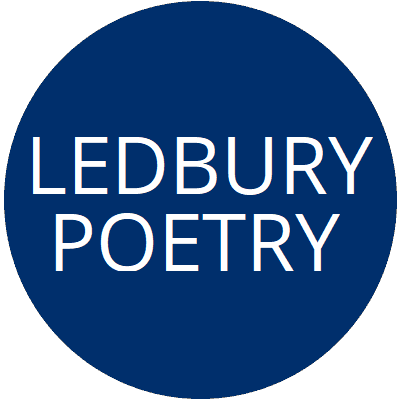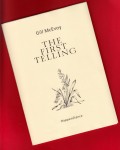After Gill McEvoy’s 20 minute event Christina Florescu, who is one of the Festival interns from the University of Worcester, interviewed her:
Your pamphlet, The First Telling, deals with quite a sensitive theme: rape and its aftermath. What inspired you to use poetry to express your thoughts on this subject?
Well, this has happened to someone I know and I was horrified. It was very sudden, and I wrote a couple of poems about it at the beginning, out of shock. When the news came out so much on radio and television about public figures who had caused damage to children I began to feel incredibly angry. Very angry! And I thought I am going to take part of this person’s story- it isn’t all their story, of course- and to write about it. I did a lot of research on rape crisis and spoke to a rape counsellor about how they handle people, and put together this pamphlet. It’s taken me three years to produce it because it has been quite harrowing, but I thought it was important to say it. It’s kind of a taboo subject and I thought it’s time someone spoke out and spoke out strongly, so that’s how it came around.
Did you think that poetry would be the perfect way of expressing the strong, harrowing element of the subject?
Not at first, actually. I thought at first that perhaps I could write an essay. And then I said no. It’s too big a subject for an essay. Poetry can condense things like brutality and shock into a few words. And I thought this had to be a sequence and it has to be poetry. And it came together very clumsily at first because I was so angry and that got in the way of the poetry and that was scraped. And then I thought, well, nature itself is cruel. Birds are cruel. And there is nothing wrong with that, but they are not a consolation. So I will use birds to draw out what has happened to the person and emphasise it. So in a sense, it’s almost a relief between the group of poems about the rape and the consequences . So that’s how, eventually it began to take shape.
I see. And you said that you were feeling angry about it. We actually have an event about poetry as protest. Do you think that poetry has this ability to liberate people and to liberate their thoughts?
I do. I really do. And I’ll tell you why I say that: before my very first pamphlet, I was very ill and wrote some poems, some very strong poems about that experience, so it appeared in my first Happenstance pamphlet Uncertain Days, which is now out of print. And I have met so many people whom those poems have helped. One poem in particular, which was called ‘Message For the Well-Meaning’ was about how angry you feel when people tell you “Think positive!” like it’s some aspirin you could take and you’d be well. And so many people appeared on the breast cancer website. I had to messages from two people who wanted to use it in a counselling workshop and a lot of different people who came to me at different readings and said: “ That just changed my life!”. So I think it is very important! I think it is the job of poetry to speak out. And I’m sure you know in many countries of the world it’s the only way that people have.
And now moving on from poetry to the people who write it; you support up and coming writers through some events…
I do! I run workshops in Chester and I run groups. And the groups are for reading poetry and understanding poetry. I think it is totally good to help up and coming people or even people who just want to write and want to write poetry. I do find that in this world there are very selfish people who just want to get on. I don’t care about that. If I can do something I want to do something for somebody else who wants to do something like that. If you can help, you should.
And do you think that festivals such as the one in Ledbury can help people put themselves out there?
Yes I do. And I think that places that offer poets a public are terribly important. And I think Ledbury in particular has been very successful at this. And very well run.


